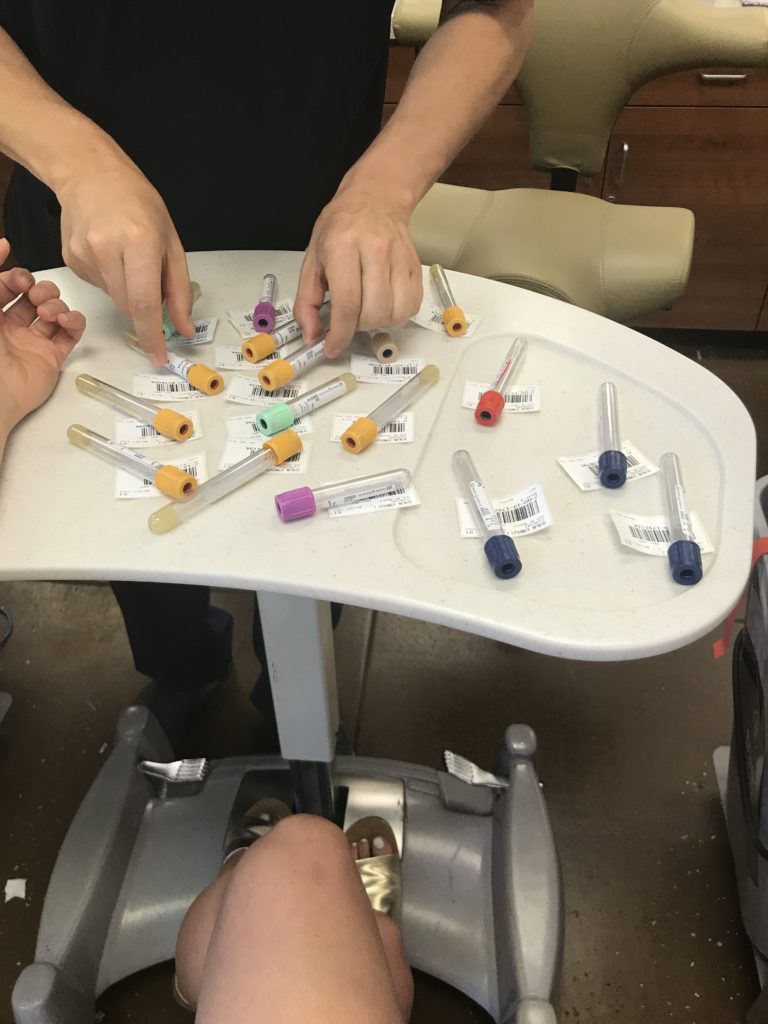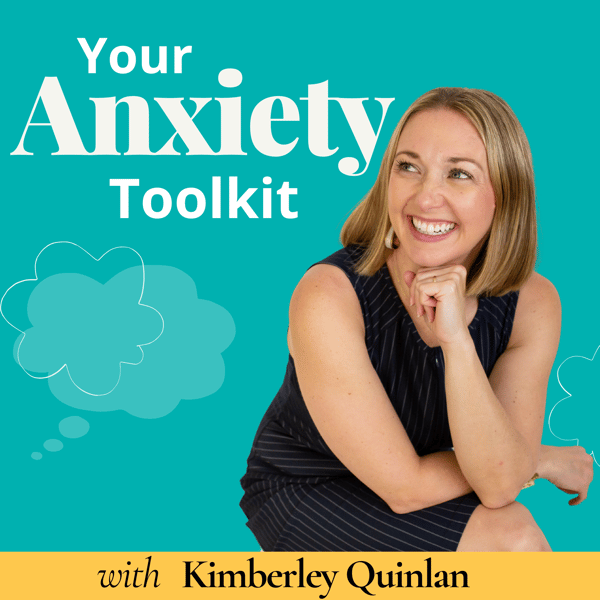Ep.124: Emotions, Radical Acceptance and POTS
Your Anxiety Toolkit - Anxiety & OCD Strategies for Everyday
Kimberley Quinlan, LMFT | Anxiety & OCD Specialist
4.9 • 802 Ratings
🗓️ 25 October 2019
⏱️ 24 minutes
🧾️ Download transcript
Summary

Welcome back to another episode of Your Anxiety Toolkit Podcast! Do you know what POTS is? I didn’t know either until earlier this year, and my life has not been the same ever since. Let me tell you one thing, we are NOT talking about something that holds plants and something you cook spaghetti in. This episode is all about Postural Orthostatic Tachycardia Syndrome, also called POTS for short.
Why? Because October is Dysautonomia Awareness month and because I have recently been diagnosed with POTS. This episode is aimed at educating you about POTS and also addresses my own experience of being diagnosed with a chronic medical condition. It has been an emotional ride, and my hope is to share with you a few tools that have helped me to manage this news and the ongoing treatment that I will need to adhere to. Thank you so much for supporting me this year. Your messages and kindness has been overwhelmingly positive and I am so grateful for you all.
So, what is POTS? Postural Orthostatic Tachycardia Syndrome (POTS) is a condition that affects circulation (blood flow). Basically, for most people, our autonomic nervous system works to control and regulate our vital bodily functions and our sympathetic nervous system, which activates the fight or flight response.
However, if you have POTS you have what is called orthostatic intolerance. What this means is that when standing up from a reclining position, blood pools in the legs causing lightheadedness, fainting, and an uncomfortable, rapid increase in heartbeat. People with POTS have trouble regulating the blood vessel squeeze and heart rate response causing blood pressure to be unsteady and unstable.
Each case of POTS is different. Patients may see symptoms come and go over a period of years. In my case, I have probably had it my whole adult life, but it has worsened enough to need medical attention. In most cases, with proper adjustments in diet, medications and physical activity, a person with POTS will see an improvement in quality of life.
People with POTS usually suffer from two or more of the many symptoms listed below.
• High/low blood pressure
• High/low heart rate; racing heart rate
• Chest pain
• Dizziness/lightheadedness especially in standing up, prolonged standing in one position, or long walks
• Fainting or near-fainting
• Exhaustion/fatigue
• Abdominal pain and bloating, nausea
• Temperature deregulation (hot or cold)
• Nervous, jittery feeling
• Forgetfulness and trouble focusing (brain fog)
• Blurred vision
• Headaches and body pain/aches (may feel flu-like); neck pain
• Insomnia and frequent awakenings from sleep, chest pain and racing heart rate during sleep, excessive sweating
• Shakiness/tremors especially with adrenaline surges
• Discoloration of feet and hands
• Exercise intolerance
• Excessive or lack of sweating
• Diarrhea and/or constipation
Please go to the below website for more information on POTS
https://my.clevelandclinic.org/health/diseases/16560-postural-orthostatic-tachycardia-syndrome-pots
Transcript
Click on a timestamp to play from that location
| 0:00.0 | This is Your Anxiety Toolkit, episode number 124. |
| 0:09.0 | Welcome to Your Anxiety Toolkit. I'm your host, Kimberly Quinlan. This podcast is fueled by three main goals. The first goal is to provide you with some extra tools to help you manage your anxiety. |
| 0:24.5 | Second goal, to inspire you. |
| 0:27.1 | Anxiety doesn't get to decide how you live your life. |
| 0:30.4 | And number three, and I leave the best for last, is to provide you with one big, fat virtual hug |
| 0:37.2 | because experiencing anxiety ain't easy. |
| 0:40.2 | If that sounds good to you, let's go. |
| 0:47.6 | Well, welcome back. |
| 0:50.5 | Well, let me just first start by saying this is actually episode 124 and it's number two of |
| 0:58.5 | recording it. I had pre-recorded this exact episode that I'm going to speak to you about, |
| 1:05.9 | but as I was listening back to it, I could hear the absolute distress in my voice. And I was tremoring. I can tell. |
| 1:16.7 | I was having a really, really hard time. And as I listened back, I'm absolutely fine, putting out |
| 1:22.4 | massive vulnerability to you guys. And I'm absolutely fine with sharing with you my own experience but there |
| 1:29.8 | were so many incorrect statements and I obviously was really struggling as I recorded that episode |
| 1:37.0 | so I thought I'd first share that with you because I always want to be absolutely authentic |
| 1:41.4 | and really show up for you guys in a way where you can see |
| 1:47.0 | me too, you know, like me too having a hard time, sometimes having a difficult time to |
| 1:51.4 | articulate what's happening for me. But it's try number two. And I'm still going to do it. I'm |
| 1:59.0 | still super vulnerable. This is a topic that I don't feel super well versed in and I'm still going to do it. I'm still super vulnerable. This is a topic that I don't feel |
| 2:03.0 | super well versed in and I'm always going to be certain to speak with you only on topics that I feel |
| 2:09.7 | super, super skilled and trained in. But this episode is about me and I'm not super trained in me. I'm not super educated in me because I'm |
| 2:21.2 | doing this for the very first time. It's the very first time I have been Kimberly, so I'm going to |
... |
Please login to see the full transcript.
Disclaimer: The podcast and artwork embedded on this page are from Kimberley Quinlan, LMFT | Anxiety & OCD Specialist, and are the property of its owner and not affiliated with or endorsed by Tapesearch.
Generated transcripts are the property of Kimberley Quinlan, LMFT | Anxiety & OCD Specialist and are distributed freely under the Fair Use doctrine. Transcripts generated by Tapesearch are not guaranteed to be accurate.
Copyright © Tapesearch 2025.

